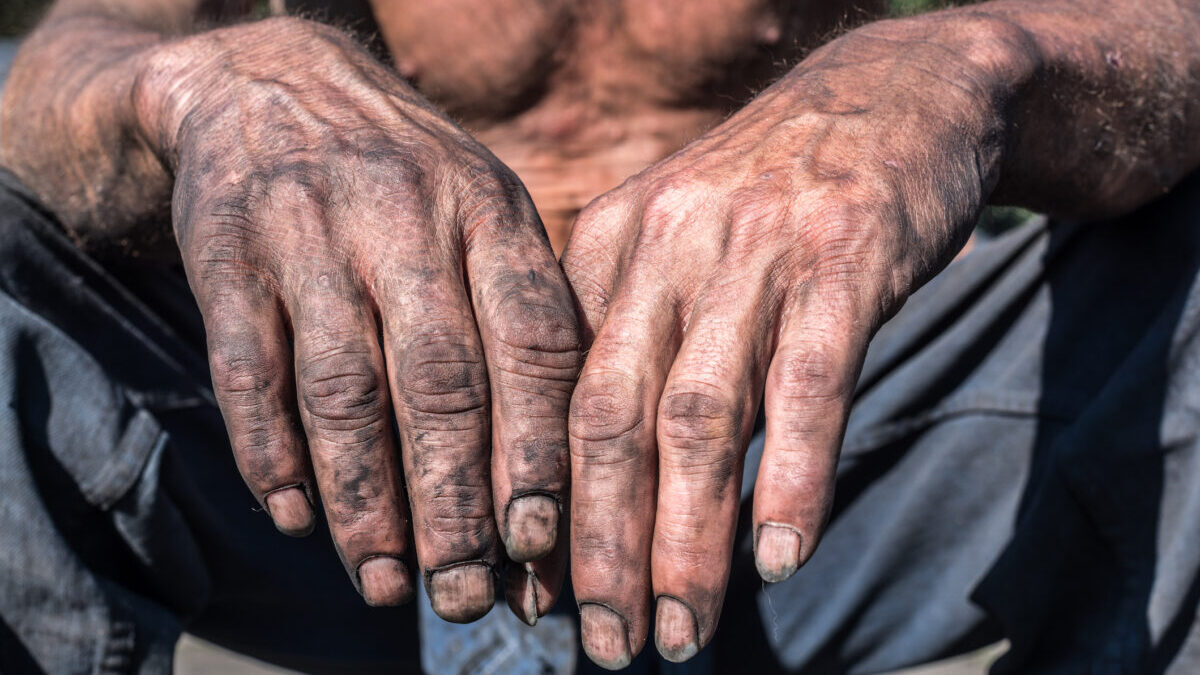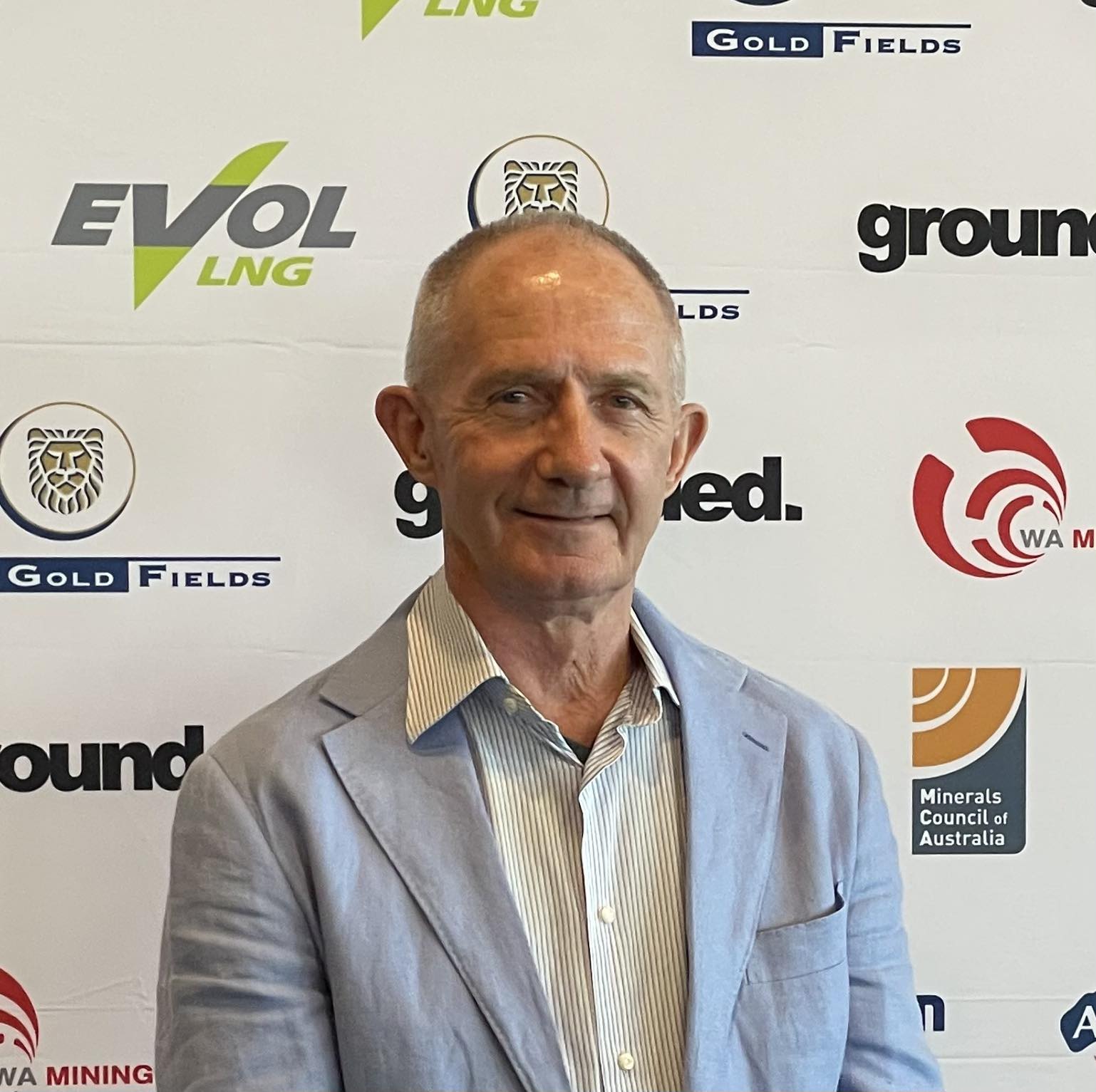Mining legend Steve Coughlan talks politics and why we should stop just putting our metals on a boat

Pic: kristo74/iStock via Getty Images
- In his first talk at the WA Mining Club, Byrnecut founder Steve Coughlan laid the boot in on pollies, policies and our dig it and ship it mentality
- Government and miners need to work to bring downstream processing in Australia
- Coughlan lets fly on Victorian budget and Same Job Same Pay
After more than 35 years at the helm of Byrnecut, one of Australia’s premier mining contractors, Steve Coughlan has seen plenty in his time in the resources industry.
One of the only independent survivors from the coterie of mining services providers that formed in the freewheeling days of the 1980s and prospered after Western Mining Corporation fought its unionised owner-operator workforce to introduce contract mining in the 1990s, Coughlan has a string of requests for government to fix issues facing the resources sector in the modern day.
Leaning heavily on his knowledge of the Kambalda nickel operations where he moved after graduating RMIT in 1974, Coughlan has called on the Federal Government to remove barriers to develop downstream processing in Australia.
He noted it has been done in times past. In 1966 driller Jack Lunnon hit 8.3% nickel in a hole called KD01 for WMC geologist Roy Woodall.
Within a year the town of Kambalda had been gazetted, the Silver Lake Shaft sunk and a concentrator built, and by 1972 a nickel smelter was open in Kalgoorlie and refinery in Kwinana, all still operating under the auspices of BHP’s (ASX:BHP) Nickel West division today.
Started to capitalise on the demand for stainless steel generated by the US military in the Vietnam War, Nickel West now supplies over 80% of its output to battery producers and electric vehicle carmakers, exactly the markets Coughlan envisages Australia servicing with refined rare earths, lithium and other commodities.
“There’s a lot of talk about value-adding and (down)streaming your minerals, as opposed to shipping concentrates offshore,” he said in a keynote speech for the WA Mining Club in Perth on Friday.
“The difficulty is the timeline and costs of the multi-government bureaucratic process and blockers to achieving this in a timely manner.
“Six years… you cannot imagine that those days. If you did it in 20, you’d probably be happy.
“Why can’t we do that again? Can there please be some real reflection and review on how we have managed to make it so difficult?
“Just put it on a boat. That’s what we do.
“So these things have happened not by one government, but multiple elected governments over time, it’s just got more complicated so we need to get rid of the green tape. The red tape. Overall government bureaucracy let’s be honest, it’s bullshit.”

Rarer than rare
Coughlan’s admits he’s “preaching to the converted”. The raucous applause when he exclaims the word bullshit is evidence of that.
His idiosyncratic communication style may not be shared by every mining executive, but his call for unity on downstream processing hardly makes him a lone voice.
MinRes (ASX:MIN) founder and boss Chris Ellison, whose mining company is one of the world’s largest spodumene lithium producers, wants to open a lithium chemical refining business to head further downstream near his Wodgina and Mt Marion mines in WA.
But its first two major investments in the space will be in plants in China alongside joint venture partner Albemarle because the speed and financial payback of building in China remains unrivalled.
Iluka Resources (ASX:ILU) MD Tom O’Leary has also made an impassioned plea for Australia to capitalise on its dominance in critical minerals resources by becoming a dominant player in downstream materials traditionally produced in China.
Its rare earths refinery at Eneabba, opening in 2025 off the back of a $1.25 billion federal loan, will be the first to produce separated neodymium and praseodymium, used in permanent magnets in EV motors and wind turbines.
It will also be the first in the West to produce separated heavy rare earths terbium and dysprosium.
On that note Coughlan took a crack at the Victorian Government for its new payroll tax hikes, which will be used to repay debts accrued in a spending spree to prop up the State’s economy post-Covid.
In the Andrews Labor Government’s eyes, the companies which benefitted from footloose consumer spending and high commodity prices in the Covid recovery should shoulder the responsibility of bringing the State back to balance.
It also wants a larger slice of the GST after the deal a few years ago which saw a floor put in States’ receipts on the back of complaints by the WA Government. Fat chance of that happening without some serious grappling from WA’s all powerful Premier Mark McGowan.
Coughlan has thoughts there as well, engaging in the sort of petty name-calling (“Chairman Dan”) that left plenty of older folks redder faced than normal after his election win earlier this year.
“Victoria has been spending money like drunken sailors, and wants WA to help pay it off. Fair dinkum,” he complained.
“Chairman Dan’s (urgh) solution is to place higher taxes on business and anyone else who has been successful. That’s the solution (notes of sarcasm).
“I didn’t hear anything about incentives to encourage new business into the State.”
(For the sake of completeness, the changes to the Victorian business tax system, which will also see a $4.7b land tax hike on property investors, do slug big businesses with payrolls upwards of $10m, but will eliminate business insurance duties and lift the tax-free threshold from $700,000 to $900,000 for small businesses and $1m from July 2025).
Calling on the Vic Government to support the development of its mineral sands industry, a potential source of high value rare earths for the energy transition, is more practical.
“If you look at the Wimmera area in Victoria there’s massive deposits of rare earth minerals,” he said.
“There’s companies waiting and waiting to get these approvals up, which will establish a rare earth minerals industry, including upstreaming which would give them royalties sustainably for decades.
“Why aren’t they bashing the door down to do that? How do we get the message across?”
Some far more controversial suggestions
More unpalatable politically would be suggestion from Coughlan that local labour shortages stunting the mining industry’s growth could be tackled partly by enabling companies like Byrnecut, which has large numbers of experienced staff at operations in Africa and elsewhere, to FIFO workers from overseas to Australian operations via a rejigged Visa system.
Byrnecut, with 6000 staff and $2.5b in turnover across the globe, has trained local employees at operations across the world.
“This shortage of labour across the spectrum in Australia and WA, specifically in our space, the government must address the expensive, complicated, long-winded and bureaucratic Visa process,” Coughlan said.
“I asked the question, why can we not readily FIFO the highly trained international people we have trained overseas into Australia to go to mine sites maybe on longer rosters like the Australians do.
“You don’t need housing, but it’s so complicated. It costs so much money. It’s too hard.
“So I say, how about industries and the government representatives get together look these issues and sorted out?”
Same Job, Same Pain
As for contract mining specifically, it has been placed under the microscope in the Same Job, Same Pay rules being floated by the Albanese Labor Government, which Canberra says are designed to close a loophole that sees labour hire workers receive less for the same job as employees of the operator.
The proposal has already been hotly contested by BHP, which says it would cost the miner over $1bn and force a review of spending in its Australian operations.
“The real danger with Albanese and Co. who who lived a sheltered existence — admittedly single child with his mother blah, blah, blah — fair dinkum get out in the real world. Go and have a look at it, you know,” Coughlan said.
“If I’m with the Eagles mate I kick the football the same as them, I should get the same money, doesn’t work like that.
“The world doesn’t work like that. If you spend all the money around wherever you want today in 20 years time, it’ll end up back with the people who knows what they’re doing, same logic.”
Coherent? No. Round of applause? Yes. Coughlan may well be out of touch with the Eagles’ current form-line as well.
One nugget of wisdom however was Coughlan’s take on why contract mining companies and mining services firms, many of whom have enjoyed strong runs and growth profiles in recent years, are essential in the modern day and age.
He said mining services firms “in no way” relieved big companies of health and safety responsibilities. Coughlan said contract workforces provide companies with flexibility.
“If they’re not employing a large workforce or equipment it gives a lot more flexibility. I can give the example of the Capricorn (copper) mine owned by 29Metals (ASX:29M), which basically shut down for three or four months because of flooding,” he said.
“If that had have been an owner mining team and equipment they’d have a real problem. You’ve basically got to make all the workforce redundant and try and sell gear.
“We’ve got a spread of work where we reallocated people and equipment. That’s the flexibility it offers.”
Related Topics

UNLOCK INSIGHTS
Discover the untold stories of emerging ASX stocks.
Daily news and expert analysis, it's free to subscribe.
By proceeding, you confirm you understand that we handle personal information in accordance with our Privacy Policy.








